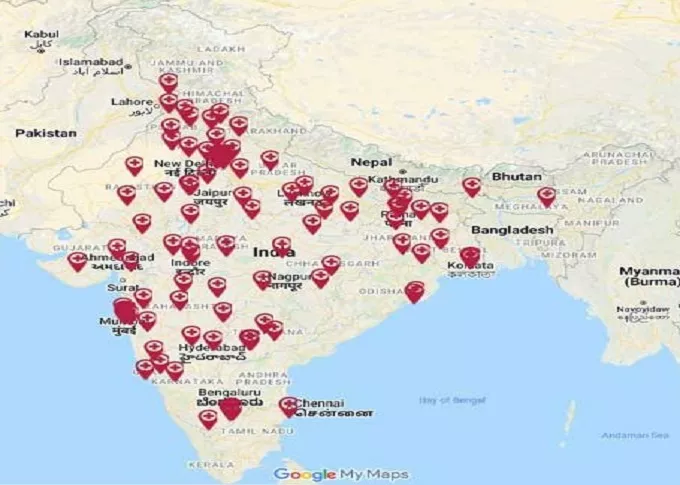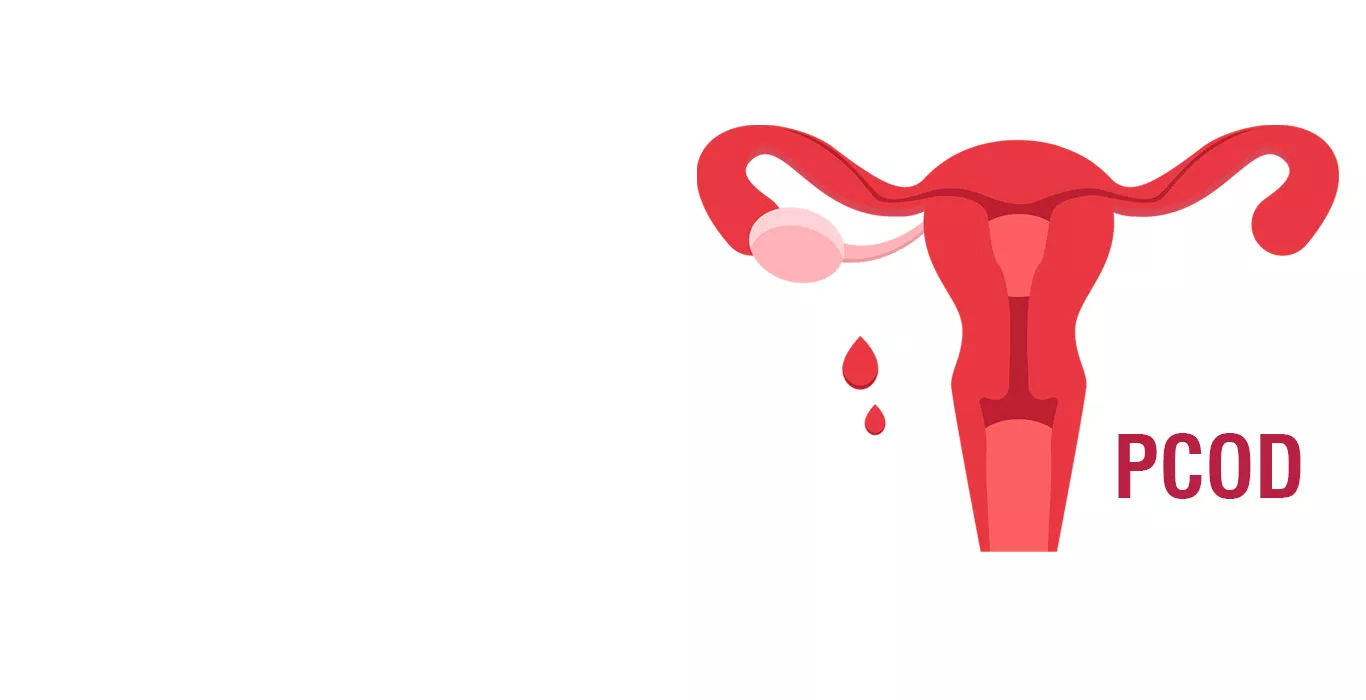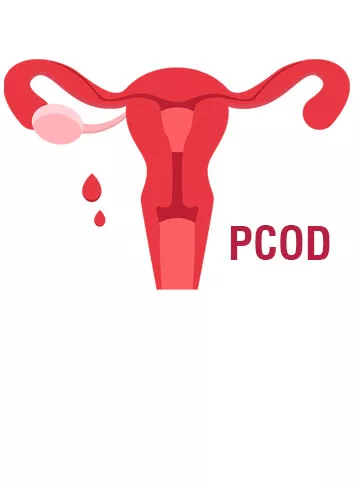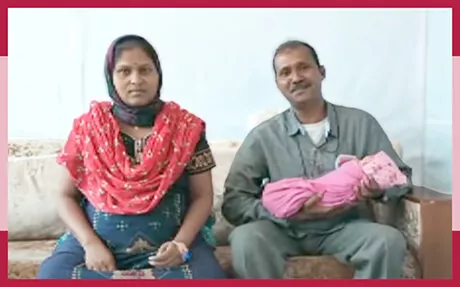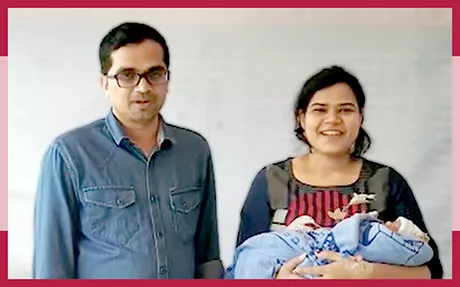What is PCOD?
PCOD is a hormonal condition that affects women during the reproductive years of life. The full form of PCOD is Polycystic Ovarian Disease.
Some “once-rare problems” have gotten prevalent over the past few decades, becoming more and more common among women. One of them is PCOD, and the PCOD full form is Polycystic Ovarian Disease. Almost 10% of women worldwide are affected by this disease. They miss their menstrual cycles as a result of this hormonal imbalance, which also makes it more difficult for women to conceive.
The medical condition known as PCOD means that there is excessive production of immature or partly developed eggs by a woman's ovaries, which over time, develop into ovarian cysts. This results in enlarged ovaries that release high amounts of androgens (imbalance of hormones), which can lead to infertility, irregular menstruation periods, hair loss, and unnatural weight gain. Although there is presently no treatment for this illness, it may be controlled & managed by making changes to one's diet and lifestyle.
What are the symptoms of PCOD?
At the time of the first menstrual cycle of puberty, PCOD signs and symptoms often start to manifest. Polycystic Ovarian Disease could also appear later as a result of gaining weight over time. Many women are mostly unaware that they have PCOD.
There are some common signs of PCOD that includes:
- Abnormal menstruation
- Skipped or absence of menstruation
- Darkening of the skin around the groyne & neck
- Severe menstrual bleeding
- Hair growth on the face, back, stomach and chest
- Acne (facial, chest, and upper back)
- Overweight or obese
- Hair thinning on the crown
What is the cause of PCOD?
Although the precise cause of PCOD problems in certain women is unknown, the following are some key contributing factors:
1. Insulin Resistance - Peripheral insulin resistance affects around 70% of women who have PCOD. A male hormone called androgen is produced in very small amounts in females but may be produced more often by the body if there is an excess of insulin, and it causes problems with ovulation.
2. Overproduction of Androgens - The ovaries generate unusually high levels of androgen hormones, which can cause acne and hirsutism.
3. Minor Inflammation - Inflammation levels in women may rise as a result of PCOD. Inflammation can also be exacerbated by being overweight.
4. Heredity - Women who have close female relatives with PCOD are 50% more likely to develop this condition.
5. Weight - Occasionally, being overweight might make insulin resistance and polycystic ovarian disease symptoms worse.
What are some complications associated with PCOD?
The PCOD side effects that call for medical attention are listed below:
- Abnormal bleeding in the uterus.
- Type 2 diabetes
- Miscarriage
- Sleep apnea
- Premature delivery and preterm labour
- Infertility or hypertension Infertility
- Chronic Liver inflammation
- Metabolic syndrome; risk for high blood sugar, high blood pressure, heart disease, diabetes, and stroke.
- Due to unwanted hair growth and other symptoms, many women experience depression and anxiety.
- Endometrial cancer caused by an enlarged uterus
- Untreatable acne showing signs of hormone imbalance
Moreover, studies show that by the age of 40, almost 50% of women with PCOD would have pre-diabetes or be diabetic, and many others would experience infertility throughout their reproductive years.
How is PCOD diagnosed?
PCOD can be diagnosed with blood tests and imaging since PCOD has physical symptoms that impact many bodily systems. The gynaecologist will inquire about your medical history, eating and drinking habits, and the use of any regular medications, including vitamins and supplements. Your diagnosis process will depend on your symptoms like irregular periods, male-pattern hair growth on a woman's face, chest, or back, acne, or thinning of scalp hair.
Depending on the PCOD diagnosis, a gynaecologist could suggest the following tests:
- Pelvic examination
- Blood tests
- Imaging test
The gynaecologist may suggest further tests in addition to the ones listed above to look for PCOD problems. They could include:
- Monitoring of cholesterol, glucose tolerance, blood pressure, and triglyceride levels on a regular basis.
- Checking for depression and anxiety.
- Screening for obstructive sleep apnea
What is the most effective treatment for PCOD?
The first steps in PCOD treatment often involve dietary adjustments, exercise, and weight loss. Women who suffer from PCOD must exercise regularly and keep a balanced diet and a healthy lifestyle. While there are various healthy lifestyle choices for women with PCOD, you are recommended to stick to a PCOD diet that is low in fat and high in carbohydrates. This would stop any unexpected spikes in your blood sugar levels and assist you in maintaining a healthy weight.
If the symptoms of PCOD do not significantly improve over successive sessions, turning to medication is the next course of action. A combination birth control pill, progestin therapy, treatment for immature follicles, and other medications may be prescribed by your doctor.
Although surgery is not the first option considered, in extreme circumstances, your doctor may conduct laparoscopic ovarian drilling to assist in initiating ovulation or the release of the egg from the ovaries. Early diagnosis and use of the proper treatment methods can assist in managing the symptoms and provide the best PCOD treatment.
There is no known cause of PCOD. Yet, symptom relief and a decrease in consequences are also possible with early diagnosis. If you suspect or are experiencing symptoms similar to PCOD, consult the top gynaecologist & fertility experts at Indira IVF today!
Related Videos
Tools to help you plan better
Get quick understanding of your fertility cycle and accordingly make a schedule to track it
Get a free consultation!
